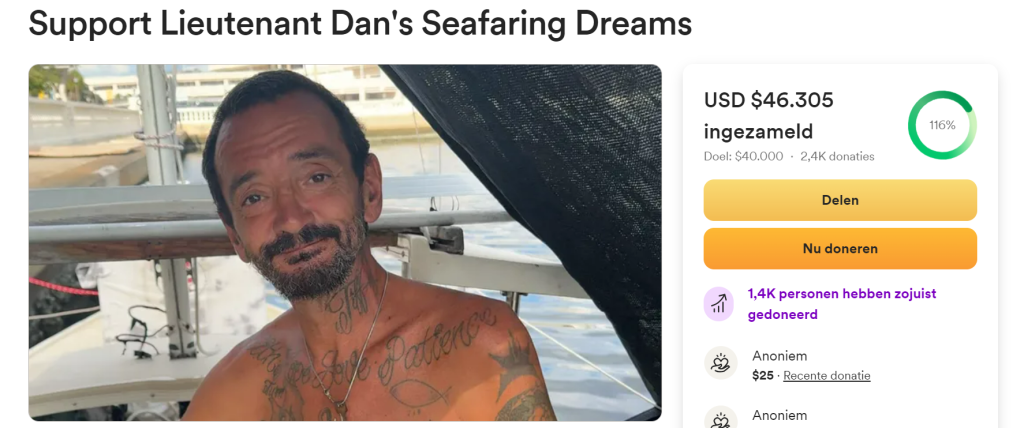Lieutenant Dan: the famous live streamer
When Hurricane Milton was expected to strike Florida earlier this week, authorities urged residents to evacuate. Tampa mayor Jane Castor didn’t mince words, warning, “If you don’t get out, you’re gonna die”. Despite these serious warnings, some people chose to stay behind, and one stood out in particular: TikTok user Lieutenant Dan. Like the character from Forrest Gump with whom he shares his name, Lt. Dan is missing one of his legs. He gained a massive following by staying on his sailboat in Tampa Bay during the storm, live-streaming the hurricane’s impact to thousands of viewers. Lt. Dan wasn’t alone in broadcasting the disaster, raising the question: how much will this trend of live streaming during crises continue to grow? What are the advantages and disadvantages?
The advantages of broadcasting disasters
Why do people turn to live streaming during such stressful times? For some, it’s a way to seek help and make others aware of their situation. In my experience, a live stream on TikTok can have a much stronger impact than a news article. For others, it may serve as a form of self-therapy, helping them cope with the fear and anxiety that come with a disaster. For viewers going through the same experience, it can be comforting to see how others are handling the situation.
One major advantage of live streaming during these events is the empathy it generates among viewers, sometimes even leading to international aid efforts. Additionally, these streams often provide real-time information that official news outlets miss. During Hurricane Milton, for example, live streams helped first responders assess the scale of damage in specific areas, offering crucial insights where traditional broadcasts fell short.

Safety issues
On the flip side, live streaming during these situations poses significant safety risks for both streamers and those around them. For instance, streaming from a war zone can reveal someone’s location, turning them and nearby individuals into potential targets.
Another issue is that streams like these often attract large audiences. In the pursuit of more views, some streamers may put themselves in harm’s way to create sensational content. This can give a distorted view of the situation, leading to the spread of misinformation. In the case of war, such content can shape viewers’ opinions based on incomplete or misleading narratives.
Other problems include privacy violations of victims, streamers exploiting tragedies for followers, and the psychological toll on viewers exposed to distressing content.
Who is responsible?
In many cases, the disadvantages of live streaming a natural disaster or war seem to outweigh the benefits. But who should be held accountable? Some might argue that the responsibility lies with the streamers themselves, yet I believe streaming platforms also need to play a bigger role in addressing the issue. However, moderating live streams is challenging. By the time problematic content is flagged, the damage may have already been done.
Moving forward
Lieutenant Dan survived Hurricane Milton, saying, “The hand of God was over Florida.” However, I worry that more people may follow his example, choosing to live stream instead of evacuating. They might not be as lucky. While these streams provide a new way to witness impactful events in real time, we need to consider the potential consequences more carefully in the future.



Recent Comments